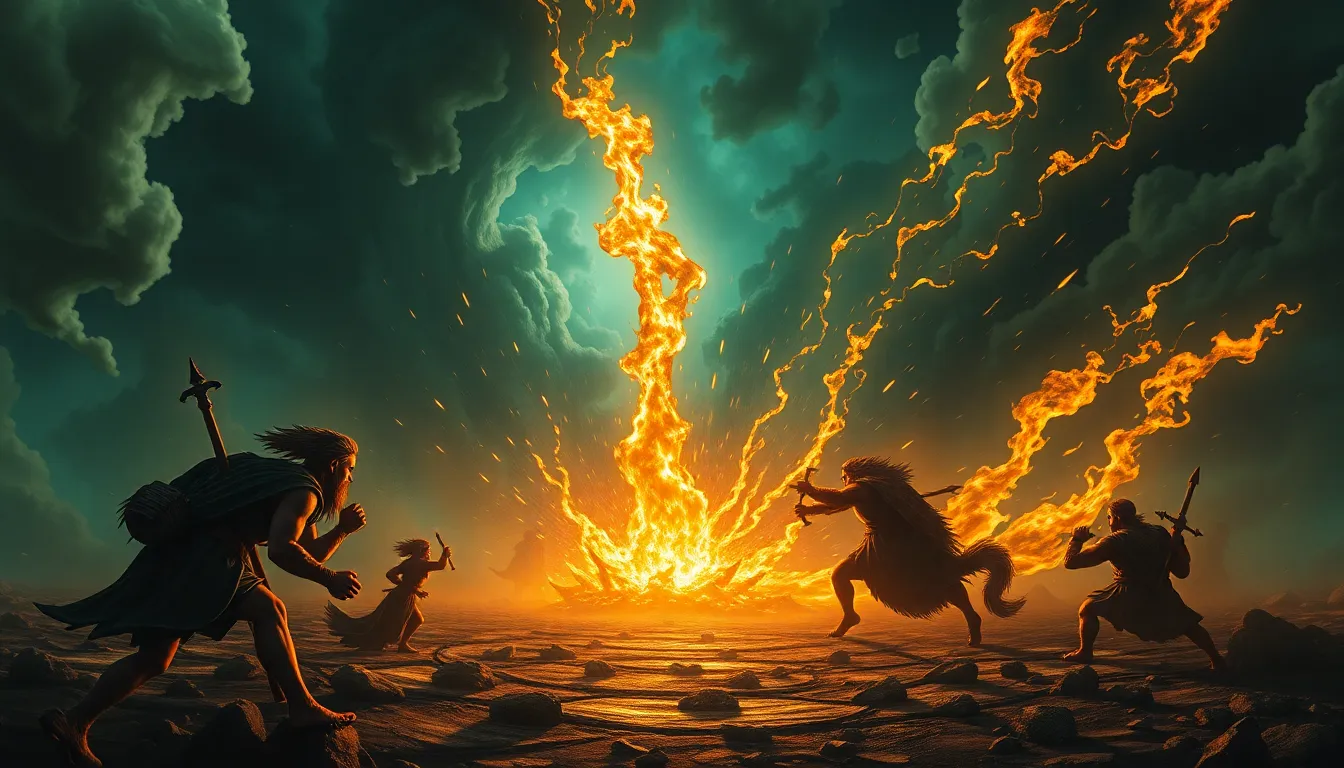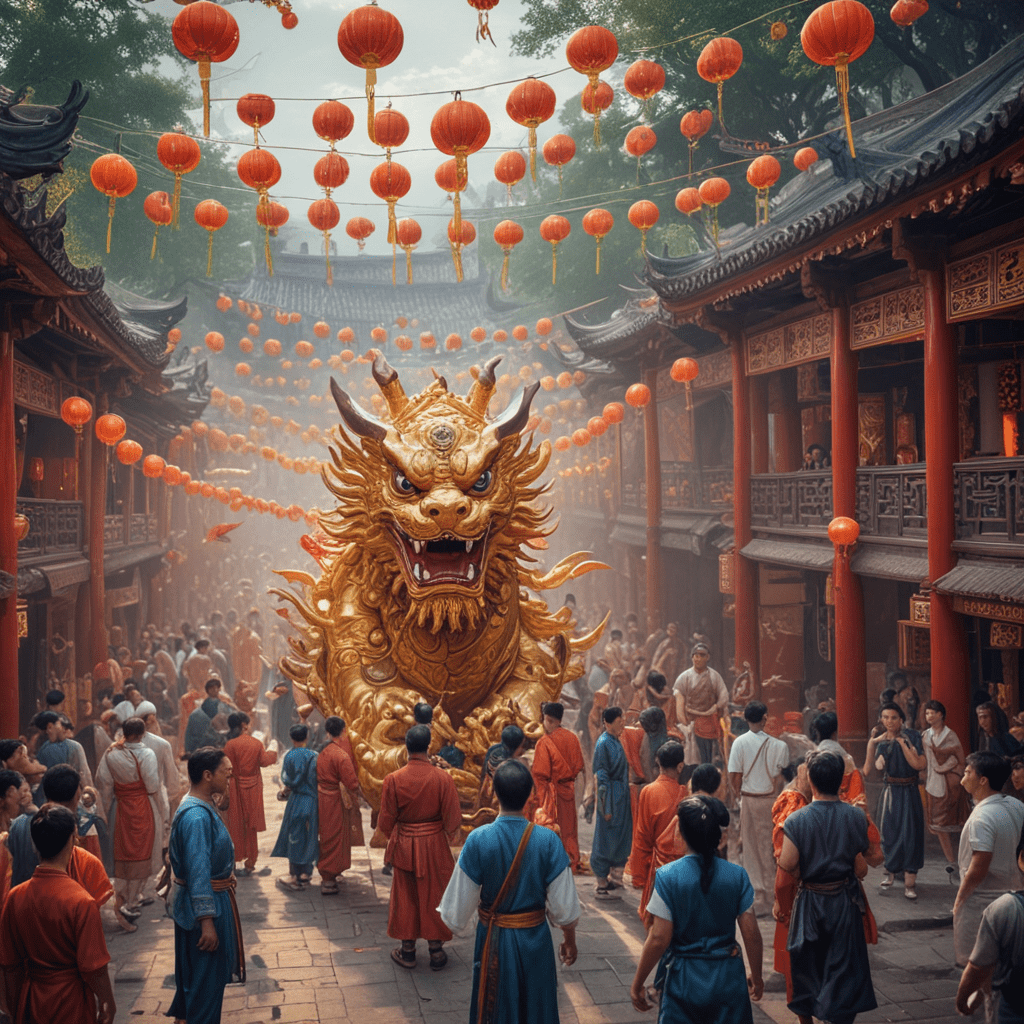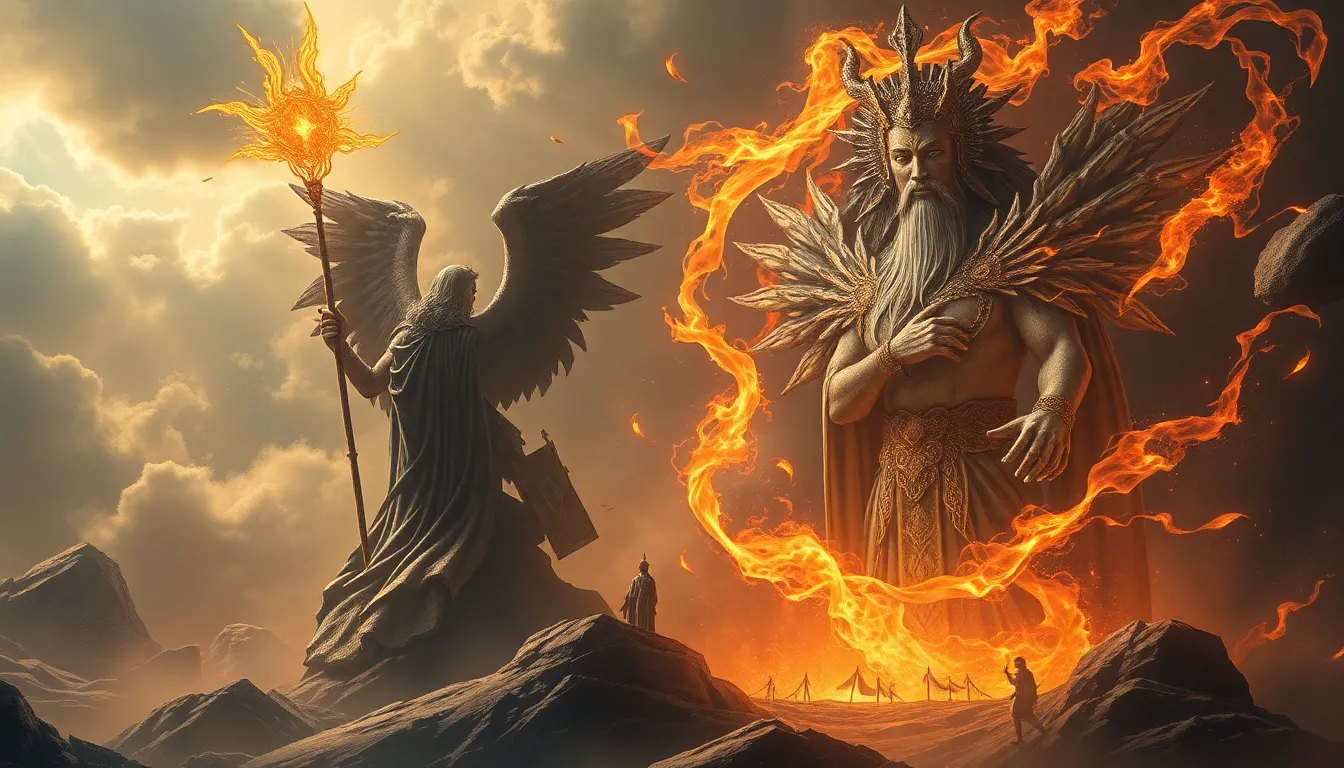The Great Mythical Clash: Legendary Battles Explored
Introduction: The Allure of Legendary Battles
Throughout history, legendary battles have captured the imagination of people across cultures and generations. These mythical clashes serve as a powerful narrative device in folklore and literature, often embodying the struggle between good and evil, order and chaos. They resonate deeply with audiences, illustrating the complexities of human nature and the consequences of conflict.
The importance of these battles in cultural narratives cannot be overstated; they provide insight into societal values, historical contexts, and the human condition itself. From ancient epics to modern storytelling, the allure of legendary battles continues to fascinate and inspire.
Historical Context: The Roots of Mythical Clashes
Legendary battles can be traced back to ancient civilizations, where they were often rooted in historical events and cultural practices. These conflicts were amplified through storytelling, becoming larger-than-life representations of the struggles faced by communities.
- Ancient Civilizations: From the Mesopotamians to the Greeks, many societies created myths surrounding their greatest conflicts.
- Geography and Culture: The geographical landscapes and cultural beliefs shaped the narratives, as seen in the way water bodies, mountains, and other natural elements featured prominently in these battles.
Gods Among Us: Deities in Mythical Warfare
In many mythical battles, gods and divine beings play a crucial role, often intervening in human affairs to alter the course of events. Their powers and motivations can drive the narrative and highlight the stakes involved in these legendary confrontations.
Case Studies:
- Zeus vs. Titans: The Titanomachy illustrates the struggle for power between the Olympian gods and the Titans, symbolizing the transition from chaos to order.
- Odin vs. Frost Giants: In Norse mythology, Odin’s battles against the Frost Giants reflect the fight against primordial forces that threaten the world.
Heroes and Legends: The Mortal Warriors of Myth
While gods often dominate the battlefield, it is the mortal heroes who embody the spirit of these legendary clashes. Figures such as Achilles, Beowulf, and Gilgamesh are celebrated for their extraordinary feats and motivations.
Profiles of Key Mythical Heroes:
- Achilles: Known for his prowess in the Trojan War, Achilles represents the tragic hero whose rage and pursuit of glory lead to his downfall.
- Beowulf: A symbol of bravery, Beowulf’s battles against Grendel and the dragon highlight themes of heroism and mortality.
- Gilgamesh: As a demigod ruler, Gilgamesh’s epic journey explores themes of friendship, death, and the quest for immortality.
The significance of their battles lies not only in their physical confrontations but also in the moral and ethical dilemmas they face.
Creatures of Myth: The Beasts That Roamed the Battlefields
Mythical creatures have always been integral to legendary battles, serving as formidable opponents or symbolic representations of chaos and destruction. These creatures often embody the fears and challenges faced by humanity.
Examination of Legendary Creatures:
- Dragons: Often seen as embodiments of greed and destruction, dragons represent the ultimate challenge for heroes.
- Griffins: Symbolizing strength and protection, griffins often appear as guardians of treasures and significant locations.
- Minotaurs: The Minotaur represents the duality of man and beast, embodying the labyrinthine struggles of the human psyche.
The symbolic meanings behind these mythical beasts enrich the narratives of the battles in which they participate.
Epic Narratives: Famous Battles in Literature and Art
Legendary battles have been immortalized in various literary works and artistic expressions, shaping cultural perceptions of heroism and conflict. Notable examples include:
- The Iliad: Homer’s epic poem explores the Trojan War and the heroism of Achilles, highlighting the human cost of conflict.
- The Mahabharata: This Indian epic delves into the Kurukshetra War, portraying the complexities of dharma (duty/righteousness) amidst battle.
These stories have had a profound impact on how modern society interprets themes of valor, sacrifice, and the nature of conflict.
Cultural Reflections: How Mythical Battles Shape Societies
Mythical battles serve as mirrors reflecting the values and beliefs of the societies that create them. They play a significant role in shaping cultural identity and collective memory.
- Cultural Identity: Different cultures interpret legendary battles through their unique lenses, which informs their understanding of heroism.
- Values: These stories often reinforce societal values such as courage, loyalty, and the triumph of good over evil.
Modern Adaptations: Mythical Battles in Contemporary Media
In contemporary media, mythical battles have evolved into various forms, including films, video games, and literature, inspiring new generations. Examples of modern adaptations include:
- Films: Movies like “300” and “Clash of the Titans” bring ancient battles to life with modern technology.
- Video Games: Titles such as “God of War” and “Age of Mythology” allow players to engage directly in these legendary conflicts.
The portrayal and significance of these battles reflect current societal issues and the ongoing fascination with the mythic past.
Lessons from the Legends: What We Learn from Mythical Clashes
Legendary battles often convey moral and ethical insights that remain relevant today. They challenge us to consider the consequences of conflict and the nature of heroism.
- Moral Insights: Many battles highlight the importance of justice, the burden of leadership, and the complexity of human emotions.
- Contemporary Relevance: The lessons derived from these myths can inform our understanding of conflict resolution and the pursuit of peace.
Conclusion: The Enduring Legacy of Mythical Battles
The exploration of legendary battles reveals their profound impact on culture, identity, and the human experience. From the gods that shape them to the heroes that fight in them, these narratives resonate with timeless themes of struggle, sacrifice, and moral complexity.
As we reflect on the enduring legacy of mythical battles, it becomes clear that their relevance continues in modern storytelling, inspiring us to grapple with the challenges of our own lives.


